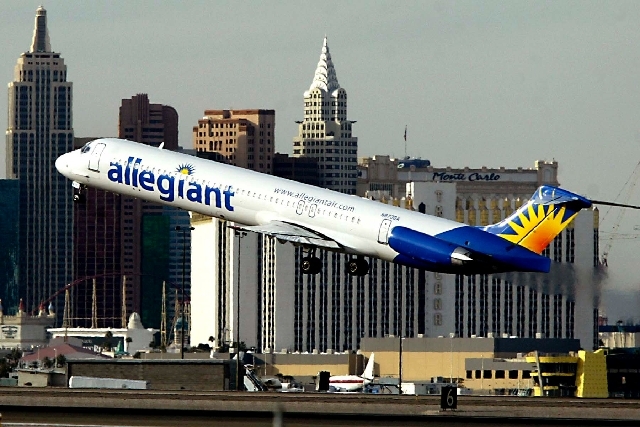Congress approves bill to end airport delays
WASHINGTON — Congress easily approved legislation Friday ending furloughs of air traffic controllers that have delayed hundreds of flights daily, infuriating travelers and causing political headaches for lawmakers.
The House approved the measure on a 361-41 vote, a day after the Senate swiftly agreed to the bill. The vote came as lawmakers prepared to leave town for a weeklong spring recess, a break that would have been less pleasant if they were confronted by constituents upset over travel delays.
Republicans accused the Obama administration of purposely furloughing controllers to pressure Congress to lift $85 billion in across-the-board spending cuts — known as the sequester — that took effect last month at government agencies.
“The administration has played shameful politics with the sequester at the cost of hard-working American families,” said Rep. Tom Latham, R-Iowa.
The White House and Democrats have argued that by law, the administration has little room to decide where the cuts fall. The White House and Democrats want Congress to work on legislation lifting all of the cuts, which lawmakers noted have also caused reductions in Head Start preschool programs, benefits for the long-term unemployed and medical research.
“How can we sit there and say, ‘Four million Meals on Wheels for seniors, gone, but that’s not important. Over 70,000 children off Head Start, but that’s not important.’ What is important is for Republicans to hold a hard line” on the budget, said House Minority Leader Nancy Pelosi, D-Calif.
The Federal Aviation Administration has furloughed the controllers as part of the government-wide reductions. The bill would let the FAA use up to $253 million from airport improvement and other accounts to end the furloughs for the controllers through the Sept. 30 end of the federal fiscal year.
In addition to restoring full staffing by controllers, the available funds can be used for other FAA operations, including preventing the closure of small airport towers around the country. The FAA had said it will shut the facilities to meet its share of the spending cuts.
The FAA said there had been at least 863 flights delayed on Wednesday “attributable to staffing reductions resulting from the furlough.”
Administration officials participated in the negotiations that led to the deal and evidently registered no objections.
After the vote, White House press secretary Jay Carney said, “It will be good news for America’s traveling public if Congress spares them these unnecessary delays. But ultimately, this is no more than a temporary Band-Aid that fails to address the overarching threat to our economy posed by the sequester’s mindless, across-the-board cuts.”
Sen. Susan Collins, R-Maine, a key participant in the talks, said the legislation would “prevent what otherwise would have been intolerable delays in the air travel system, inconveniencing travelers and hurting the economy.”
Senate approval followed several hours of pressure-filled, closed-door negotiations, and came after most senators had departed the Capitol on the assumption that the talks had fallen short.
For the White House and Senate Democrats, the discussions on legislation relating to one relatively small slice of the $85 billion in spending cuts marked a shift in position in a long-running struggle with Republicans over budget issues. Similarly, the turn of events marked at least modest vindication of a decision by the House GOP last winter to finesse some budget struggles in order to focus public attention on the across-the-board cuts in hopes they would gain leverage over President Barack Obama.
The Professional Aviation Safety Specialists, a union that represents FAA employees, reported a number of incidents it said were due to the furloughs.
In one case, it said several flights headed for Long Island MacArthur Airport in New York were diverted on Wednesday when a piece of equipment failed. “While the policy for this equipment is immediate restoral, due to sequestration and furloughs it was changed to next-day restoral,” the union said.
The airlines, too, were pressing Congress to restore the FAA to full staffing.
In an interview Wednesday, Robert Isom, chief operations officer of US Airways, said, “In the airline business, you try to eliminate uncertainty. Some factors you can’t control, like weather. It (the FAA issue) is worse than the weather.”
In a shift, first the White House and then senior Democratic lawmakers signaled a willingness in the past two days to support legislation that alleviates the budget crunch at the FAA, while leaving the balance of the $85 billion to remain in effect.
Obama favors a comprehensive agreement that replaces the entire $85 billion in across-the-board cuts as part of a broader deficit-reduction deal that includes higher taxes and spending cuts.
Officials estimate it would cost slightly more than $200 million to restore air traffic controllers to full staffing, and an additional $50 million to keep open smaller air traffic towers around the country that the FAA has proposed closing.
———
For The Associated Press, Joan Lowy, Henry C. Jackson and Alan Fram in Washington and David Koenig in Dallas contributed to this report.






















